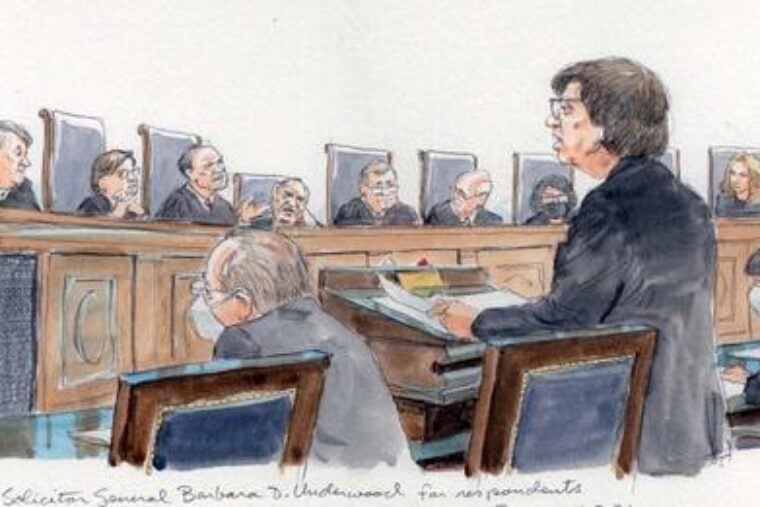SCOTUS argument analysis.
This article was updated at 5:15 p.m. ET Nov 3.
When Wednesday’s oral argument in New York State Rifle & Pistol Association v. Bruen drew to a close after roughly two hours of debate, it seemed likely that New York’s 108-year-old handgun-licensing law is in jeopardy. But the justices’ eventual ruling might be a narrow one focused on the New York law (and others like it), saving broader questions on the right to carry a gun outside the home for later.
The law requires anyone who wants a license to carry a concealed handgun to show “proper cause” for the license. Courts in New York have defined “proper cause” to require applicants to show a special need to defend themselves, rather than simply wanting to protect themselves or their property.
Representing the challengers in the case, a gun-rights advocacy group and two men whose applications for unrestricted concealed-carry licenses were denied, lawyer Paul Clement told the justices that the text of the Second Amendment enshrines a right to bear arms, and the history and tradition of the United States confirm that the text protects an individual right to carry a gun for self-defense. Carrying a gun outside the home is a fundamental right that people in 43 other states enjoy, Clement observed. And the point of a constitutional right, he stressed, is that you don’t have to satisfy a government official that you have a good reason to exercise it.
By Amy Howe



